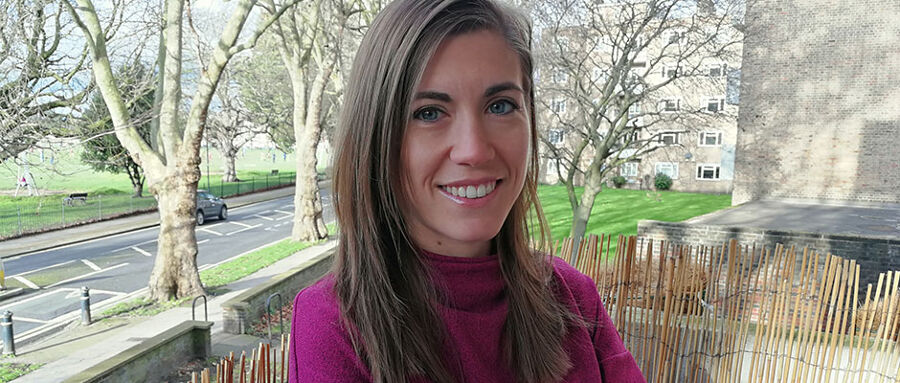
Carmen Aguilar García
Data Journalism MA
After a decade in the industry, Carmen decided to return to education to specialise in Data Journalism. After thriving on the course and making the most out of the opportunities that came her way, she went on to work for Sky and nowadays works as a Data Journalist for The Guardian.
“I completed my undergraduate studies in Madrid and had eight years of experience working as a TV reporter and digital journalist for several media outlets in Spain and Chile.
During those working years, the idea of coming back to the university to study for an MA was always in my mind, but I hadn’t found the specific area I wanted to specialise in. It was whilst I was working on a project that I realised I wanted to make a change in my career and specialise in data journalism. I thought a master's degree was the best way of acquiring the skills that I needed to be successful in this career change.
I did my research to find where I could study this discipline and I got in touch with Professor Paul Bradshaw, who was about to announce the MA in Data Journalism at BCU. I applied for a place, decided to quit my job in Chile, and moved to the UK to study.
During my studies, I had placements with the BBC Shared Data Unit in Birmingham and the European Data Journalism Network, and I did work experience at The Guardian data team.
The work placement experience and the several industry events that we were encouraged and facilitated to attend, such as conferences and meetups, did really help to start introducing myself to the inner circle of data journalists in the UK and it was an excellent opportunity for me to understand the sector better.
If changing countries was not enough, after the MA I had to completely build up my reputation as a data journalist in a country where I had never worked before and in a different language. The skills, resources, tools and material I learned during the MA were the perfect equipment to achieve this task.
I had just submitted my MA project when I got a position as the first Data Journalist at Sky News. Within weeks, I moved to London and started an exciting and challenging journey in a new organisation where I had to show what data journalism is and how it adds value to the reporting Sky News was already doing.
I covered the three demanding years of the pandemic in Sky News and by the time I left, it was not a single-person department, but a full new team of data journalists and data journalism took a very relevant place at the core of Sky News reporting.
After almost four years, I changed jobs, and I am now part of The Guardian data projects team, and I have worked as a Data Journalist for the news outlet since August 2022.
We have a morning meeting every day to discuss ideas, organise the day and the rest of the week, raise problems with stories we are working on and try to help when we get stuck.
Some days there are data releases we have to cover during the day. If that is the case, we check the data first thing in the morning and look for a news angle to pitch to the news desk. If they want it, we write the story on the same day.
Sometimes, there is a reporter working on something for which they need our help with, and we always try to help with data queries too.
I have now worked in two of the main media organisations in the UK, both recognised internationally, and I have carried out stories and investigations that I feel proud of.
My advice to current students is if you are pursuing a career in journalism, having a portfolio is important to show your skills. If you don’t have one, it's worth using the university magazine or a personal blog to publish your stories. Industry events are also a good place to meet people from the sector, and you can reach out to people through LinkedIn too.
Also, make the most out of university and your time as a student. Do not miss this amazing opportunity of investing time in learning and acquiring new skills. Challenge yourself and explore as many tools, theories and paths as possible. This time is precious. The rhythm in the industry is much faster.
To me, I AM BCU means that I feel proud of the place where I studied and the professors I had.”